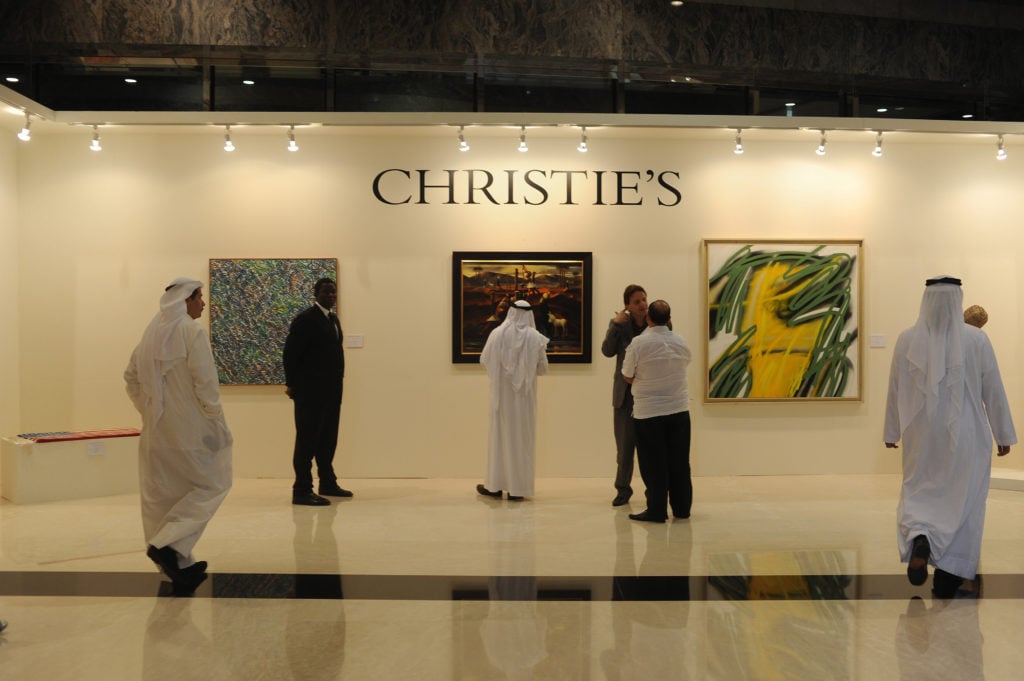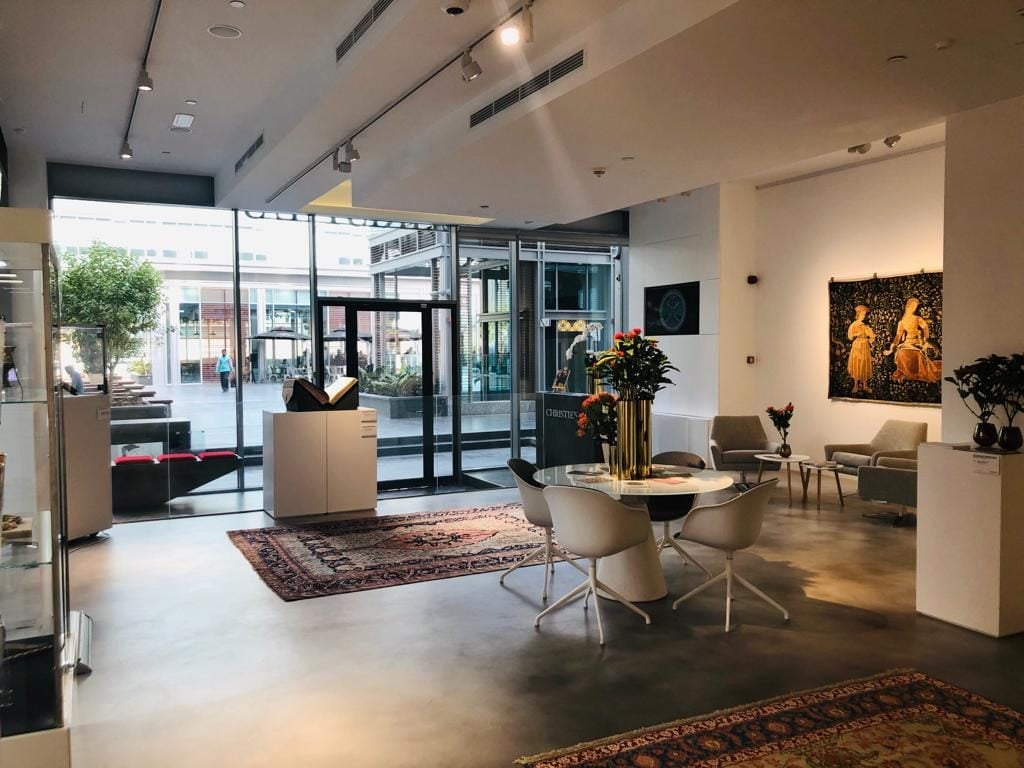Art Fairs
Christie’s Has Cancelled Plans for a Middle Eastern Art Auction in Dubai, Citing a Lack of Top-Quality Works
The auction house will still hold a London sale of Middle Eastern art in October.

The auction house will still hold a London sale of Middle Eastern art in October.

Rebecca Anne Proctor

Amid unease in the Middle East, Christie’s has nixed its annual March auction in Dubai, which will now be folded into a London sale scheduled to take place in October.
“Following the success of our sales in Dubai and London devoted to showcasing the best of Middle Eastern modern and contemporary art to global audiences, we will be focusing on one major art sale in 2020 to take place in London,” said Michael Jeha, Christie’s chairman for the Middle East.
The auction house, which hosted its first Dubai auction in 2006, says the decision is due to a dearth of top-quality Middle Eastern artworks available for sale, which Caroline Louca, Christie’s new managing director in the Middle East, attributes to the overall success of the market.
“The move to one sale per year has been something we have been discussing for some time now,” Louca told Artnet News. “We needed to respond to the new needs of Middle Eastern collectors who are hungry for a curated sale of quality works that meets strategies that they are following in their collections. Collectors have matured in their choices and their buying.
“The majority of top modern Middle Eastern artworks have been sold over the last 10 years and are not yet back out on the market,” she added. “And most institutions have no intention to resell their work. This means that now we are looking at helping the contemporary scene and the contemporary market.”
Over the past 15 years, major works have been acquired by private institutions such as the Barjeel Art Foundation in Sharjah and the Louvre Abu Dhabi.
Yet some dealers say the issue is less about the availability of artworks, and more about the opacity of the market.
“Above all, we need more quality, more research, more added value, and more transparency,” says Charles Pocock, cofounder of Meem Gallery and advisor to the Barjeel Art Foundation in Sharjah. “The work is out there. If we can access [it], so can they. Above all, there needs to be more transparency and more security for the buyer against fakes.”
For its part, Christie’s will launch an extensive exhibitions program and educational initiatives in both traditional markets and new territories in the coming months. The events will include charity auctions in Abu Dhabi and Saudi Arabia at the end of January. The auction house also plans to stage a preview of an upcoming sale in the UAE to coincide with Art Dubai.
“We are diversifying our presences in a meaningful way,” Louca says.

The Christie’s office in Dubai. Courtesy of Christie’s.
Yet recent political turmoil in the Middle East—including heightened tensions between Iran and Saudi Arabia, an international blockade of Qatar, and violent protests in Lebanon—are also threatening the regional market. Iranians find it increasingly difficult to transfer money abroad, while in Lebanon, it is nearly impossible to take money out of the bank.
“If you combine the two, Iran and Lebanon, it takes out, at minimum, 60 percent of the buying power at auction,” Pocock says, alluding to an issue Louca also recognizes.
“If a collector has only a Lebanese bank account, they are not really able to transact outside of Lebanon,” she says. “But it is not a reflection on whether they have or do not have the appetite to buy.”
Yet others inside the auction houses say they are not concerned about the overall instability of the region.
“Serious collectors have very discerning tastes, and they will buy and bid when presented with museum-quality works regardless of the political situation,” says Mai Eldib, the cohead of the Sotheby’s Middle East sale.
“I think it’s business as usual for everyone. Middle Eastern clients spent 20 percent more across the business in 2019 compared to 2018, and in 2019, we saw 82 percent more UAE buyers in our global sales than in 2015.”
Meanwhile, dealers in the trade say that flexibility is essential—especially as the market shifts from region to region.
“Every year is different and everyone has to adapt to it,” says Will Lawrie, co-owner of the Dubai-based Lawrie Shabibi gallery.
“In 2018, I would say the bulk of our sales by value went outside of the Middle East to US buyers and other parts of the world. But last year, a large portion of it went to private institutions and individuals in the UAE.”
Christie’s says it is still planning a Dubai art auction in March 2021, and will maintain its annual “Important Watches” auction in the city, scheduled to take place on April 11, 2020.